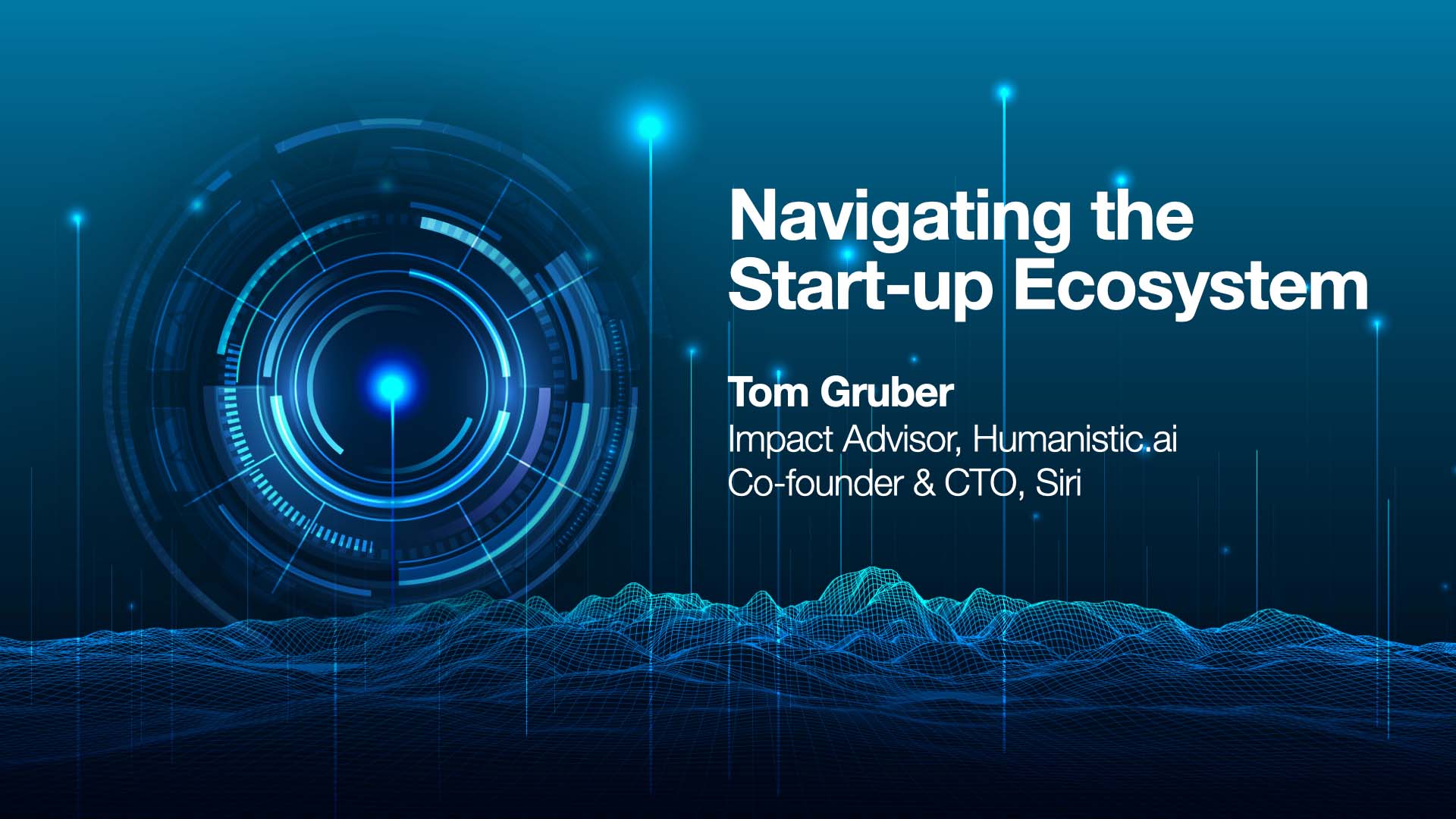Speaking
Tom enjoys public speaking about topics that matter today, such as the impact of AI on society, what makes a successful startup, and how to save the ocean. In talks to conferences and private audiences, he offers insights from his experience in technology research, design, startups, and travel. He loves interactive Q&A, and can tailor presentations to the interests of any audience.
As an innovator, researcher, and serial startup entrepreneur, Tom gives audiences a front-row seat to what it means to envision the future, then set about building it. If you use Siri on your phone, learn from a threaded discussion on the Web, collaborate with colleagues in a virtual workspace, or use a computer to help you speak, it is likely that Tom helped invent it, influenced its development, or was designing an early version of it before it entered the mainstream. As an Impact Advisor to over a dozen companies in Humanistic AI, he keeps his finger on the pulse of innovation. As a result, Tom adapts his talks to the latest findings and topics of interest to business audiences.
Featured Talks
Speaking Topics
AI and Humanity Today: The Promise and Problems of Generative AI
Almost overnight, the world has come to see that the new technology of large language models and generative AI could change the nature of knowledge work. Trained on the cultural legacy of humanity, these systems can now do many tasks involving language, images, and information that are the expertise of educated professionals. In this overview of modern AI, which is updated with fresh insights every time it is given, Tom explains how these systems are created, what they are great at, what to be careful with, and the exciting applications that they enable. He brings to bear decades of experience in designing AI systems and advising AI companies. Applications include education, creative services, software engineering, knowledge management, mental health care, and augmented cognition. He offers insights into the potential risks to individuals and society from ungoverned applications, and a positive vision for the future of truly personal AI.
Sample presentation: AI, Big Data, and Humanity in 2024: Our new relationship with AI
AI, Big Data, and Humanity: Risks and Opportunities
Artificial Intelligence, operating on big data, opens a world of possibilities to improve how we work, play, learn, and take care of ourselves. What is the proper role of AI in relation to humanity? How do we build AI-driven systems that deliver outcomes we want while avoiding unintended consequences? In this thought-provoking talk, Tom lays out a clear ethical choice. The key lies in aligning the objective of the machine with human values: engineering the AI systems to augment and collaborate with us for the betterment of humanity. Drawing from his direct experience building planetary-scale AI and advising a new generation of Humanistic AI companies, Tom offers insights to entrepreneurs, investors, and policy makers navigating the high-stakes decisions of AI today.
Sample presentation: What AI and Big Data Can Do for Humanity
How to Build the Future: Practical Principles for Startup Founders
In 2010 Siri was purchased by Apple and remains central to the user experience of all Apple products. Today, Siri is used more than a billion times every day. But in late 2007 when Tom and his co-founders launched their fledgling startup, none of this was guaranteed. Why did top VC firms first invest in the company, even as the sky was falling in financial markets? Tom outlines four key factors that led to Siri’s success — factors that are essential to any successful startup. He shares insider details of Siri’s trajectory, while providing real-world examples from other companies, showing how attendees can put these principles into practice with their own ventures.
Sample presentation: Navigating the Startup Ecosystem
Colorful Lives: Photographic Stories from the Ocean
Experience the colorful lives of underwater animals through the lens of art photography. Learn about the surprising sex lives of famous animated fish, the bizarre mating habits of punk-rock nudibranchs, and the majestic grace of the largest fish in the ocean. See the adorable playfulness of sea lions up close, and then consider the message they have for us about our relationship to the ocean. Tom is in love with life in the ocean, and is privileged to travel around the world to dive in places where marine life still thrives. With his underwater photography and video, he hopes to bring back and share what he sees to create empathy and connection with the ocean.
Sample presentation: Colorful Lives: Photographic Stories From the Ocean















